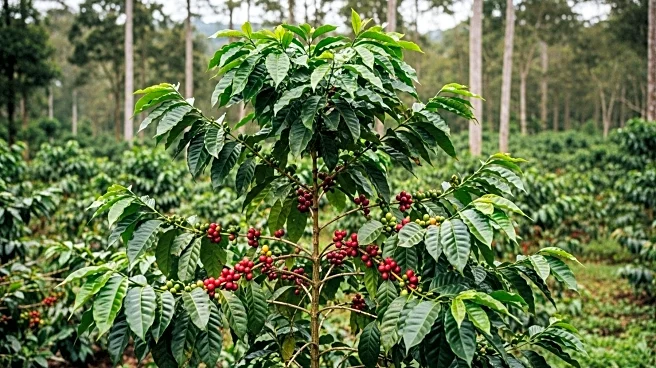What's Happening?
The Rainforest Alliance has announced a new Regenerative Agriculture Standard aimed at helping coffee farmers and companies build more resilient livelihoods and restore ecosystems. This certification, set to be available early next year, will initially focus on coffee but plans to expand to other crops such as cocoa, citrus, and tea by 2026. The certification will allow products to bear a distinct seal, indicating they come from farms committed to enriching the land and the lives of those who depend on it. This initiative comes at a time when extreme weather and environmental degradation are significantly impacting global agriculture, threatening the livelihoods of millions of coffee farmers, particularly smallholders who produce over 70% of the world's coffee.
Why It's Important?
The introduction of the Regenerative Agriculture Standard is significant as it represents a shift towards more sustainable farming practices that can improve income for farmers by up to 20% to 30%. This approach not only aims to restore nature's essential functions but also enhances the resilience of coffee farms against climate shocks. For companies, sourcing certified regenerative coffee is a strategic investment that strengthens supply chains and meets growing consumer expectations for sustainable products. This certification provides a credible way for brands to enhance their ESG performance and make stronger claims about their environmental impact.
What's Next?
The Rainforest Alliance is encouraging farmers and companies to begin their journey towards regenerative agriculture by exploring the certification requirements and preparing for implementation. Coffee farms in Brazil, Costa Rica, Mexico, and Nicaragua are already adopting these practices, with companies preparing to launch certified regenerative coffee products by 2026. This move is expected to open new market opportunities for coffee producers and allow consumers to make more informed purchasing decisions that support both farmers and the environment.











